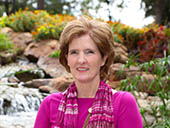The Great Commission for the Rest of Us
This article is over six months old and may reference former titles for DBU faculty or staff, discontinued programs, or other details that have since changed. If you have any questions, please contact us at news@dbu.edu, or (214) 333-5172.

“Then Jesus came to them and said, ‘All authority in heaven and on earth has been given to me. Therefore go and make disciples of all nations, baptizing them in the name of the Father and of the Son and of the Holy Spirit, and teaching them to obey everything I have commanded you. And surely I am with you always, to the very end of the age.’” - Matthew 28:18-20
Pastors and mission organization spokespersons often quote Jesus’ final words to his disciples in Matthew 28 as a challenge to those called by God to serve him in a foreign land as vocational missionaries. A person’s final words before departing carry significant weight and Jesus’ final words to his disciples are no different. With over 40% of the world’s population still “unreached,” we must take his command to make disciples throughout the world seriously.
However, when the message communicated to followers of Jesus is that this Great Commission is reserved for those who serve in a full-time, vocational ministry through a church or para-church organization, multiple problems arise. This bifurcated worldview strengthens the sacred-secular divide elevating church callings over “secular” callings.
While God certainly calls some to full-time vocational ministry, in Matthew 28, Jesus spoke to all believers including those who are called to full-time vocational ministry through business, law, education, medicine or any area of work.
One result of sacred-secular divide is the loss of identify for followers of Jesus who are not called to work not called to vocational ministry, often leading them to view themselves as second class Christians stunting the growth of the Church worldwide.
All who follow Jesus as their Lord and savior are his disciples. Reserving this passage for those individuals called by God to a full-time vocational ministry in a church or mission agency is emblematic of a broader perspective that has had significant negative consequences for individual believers and for the Church, including:
- Churches depend too much on their paid staff to do the work of making disciples. They fail to see each member of their church as a disciple who should be growing spiritually and making disciples himself or herself.
- “Missions” and “evangelism,” is often focused on bringing people to an intellectual “faith” in God rather than helping people grow in their personal walk with and obedience to Jesus for the glory of God. This intellectual acceptance of God’s sovereignty and belief that Jesus died for sinners is not that dissimilar from what Satan believes. Intellectual belief alone is not sufficient for a new life in Christ.
- Many Christians do not truly understand what it means to be a disciple of Jesus. They are led to believe that praying the “Sinner’s Prayer” is the culmination of their personal engagement with Jesus until he returns rather than the start of a deepening walk with Jesus that will last throughout eternity. In fact, the “walk” begins before the “prayer” as Jesus comes alongside us in our lost condition and draws us to himself.
- Followers of Jesus do not know what it is like to be discipled. This is either because they are not aware that they need to be discipled or because churches don’t really see the importance of it.
- Followers of Jesus do not know how to disciple, primarily because they have never been discipled themselves.
- The lost don’t see the relevance or value of the good news of Jesus Christ because their perspective on being a Christian is skewed by what they see in Christians around them. If our lives are not continually being made more and more into the image of Christ as we follow him, then how are we any different than anyone else? Perhaps we are more “moral,” but in many cases that is not even a distinction. At worst, we sometimes judge the lost because they act lost. What do we really have to offer that draws people to Christ?
Most pastors would wholeheartedly agree that discipleship is critical to the life of a believer. Some churches have discipleship programs with varying levels of participation and results. Yet for many churches, the work of making disciples falls to the shoulders of the paid staff rather than all members of the church.
Unfortunately, many churches focus more time and resources on raising money for building campaigns and holding events to attract lost people rather than helping members see the need for their own discipleship and the role they play in making disciples. Imagine if every church member saw themselves as disciple makers. Churches would not be large enough to hold all the people in the community who might come to faith through the empowered witness of its members!
Followers of Jesus who are not called to traditional, full-time, vocational missions or ministry often adopt an identity as a second-class Christian. This faulty self-perception diminishes their identity in Christ as well as their responsibility before him. The assumption is that Christians simply need to “believe” in Jesus and anything more than that is an additional, optional level of commitment to God. As a second-class Christian, one misses the privilege of being a co-laborer with Christ in the restoration of God’s creation and misses the closeness of walking with him in personal fellowship, assuming those blessings are reserved for the special ones called by God. At the same time, being a second-class Christian is often used as an excuse for a lack of spiritual discipline and an allowance for toying with sin.
So, pastors and mission leaders, what do you say? Can you help those of us who are not called to full-time vocational ministry through a church or mission organization share with you in the Great Commission of our Lord? Can you help us, the vast majority of members of your churches (those who may have more access to the lost in our communities than you do) learn what it means to be a disciple and how to make disciples in our daily lives, our communities, our work places, our families?
Would you challenge us to make disciples outside the church walls rather than simply asking us to invite the lost to church where you do the heavy lifting of communicating the good news to them? Would you empower us to live a life fully committed to our master and equip us as we seek to follow him daily?
Dr. Ross O’Brien is an Associate Professor of Management in the College of Business at Dallas Baptist University, and the Director of the Center for Business as Mission, which educates and equips aspiring business leaders with the integration of God’s calling to mission and business.








